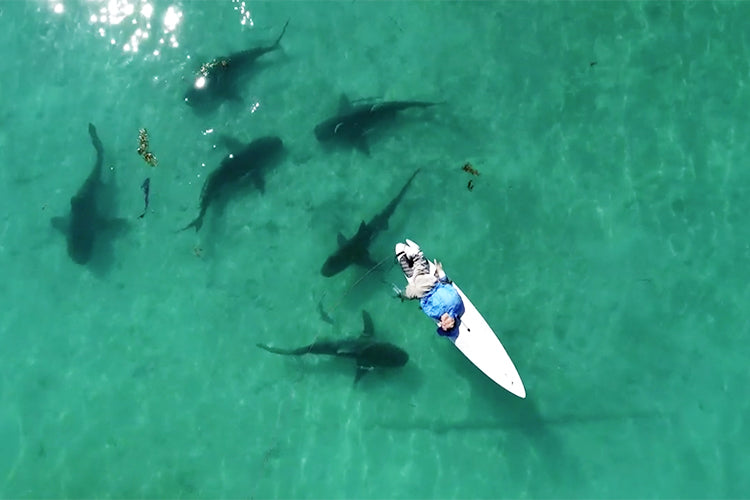Why are people afraid of sharks?
"The question implies they shouldn't be," says David Ropeik, a consultant on risk perception and author of the book How Risky Is It, Really? Why Our Fears Don't Always Match the Facts.
A fear of sharks, or galeophobia, is not irrational, says marine biologist Blake Chapman, a shark expert at the University of Queensland in Australia. Simply put, the predatory fish are scary. Great whites, for example—the species Hollywood immortalized as mindless killers—have mouths lined with several rows of up to 300 dagger-like teeth that can easily shred through prey. They can also sense tiny electromagnetic fields put out into water by other animals, which helps them scope out their next meal. (Watch: "World's Deadliest: Shark Superpowers")
Where did this fear come from?
Fear is not necessarily something we're born with, but it's something we have developed over time. Infants aren't afraid of snakes and heights, but as adults, our brains become more sensitive to fearful stimuli.
But, oh boy, did our ancestors have a lot to be afraid of! Think back to how ancient people would have survived in their primitive habitats. They would have avoided tall cliffs and wild animals because they knew those threats could potentially kill them, and that's what kept them alive. They learned fear as an adaptation to protect themselves.
"Fear is something that we've inherited from our early ancestors," Chapman says. "[Sharks] are an animal. Biological things like animals are something that we're very prone to fear."
-by Elaina Zachos
Read more of this article at NATIONAL GEOGRAPHIC, found here.







